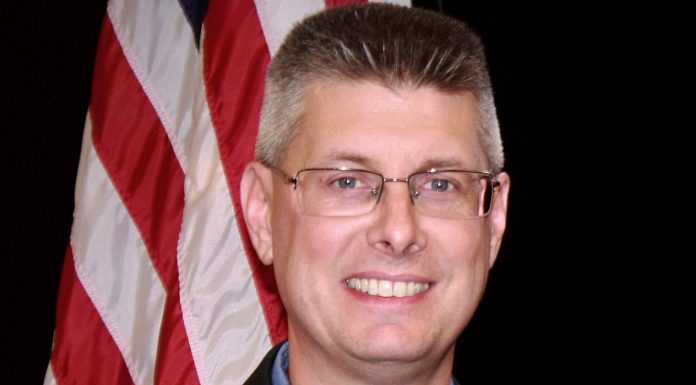As the Russia-collusion hoax continues to unwind, an FBI official at the heart of the government’s spying abuses was revealed to be a professor of spying ethics at a Washington, D.C. area college.
Brian J. Auten, a former senior FBI analyst, was cited by the Justice Department for failing to properly vet the so-called Steele Dossier, which was used as the basis to secure secretive warrants to spy on the Trump campaign.
As of Friday, Auten’s professor page at Patrick Henry College appeared to have been recently taken down.
The dossier—commissioned by the Hillary Clinton campaign—was a compilation of dubiously sourced dispatches from ex-British spy Christopher Steele, an outspoken Trump critic who worked for the seedy opposition research firm Fusion GPS.
Since the conclusion, last year, of the 18-month, $30+million special counsel investigation led by former FBI Director Robert Mueller, the unprecedented conspiracy to overthrow President Donald Trump has been blown to bits by multiple inspector-general reports and troves of declassified documents.
None of the dossier’s salacious accusations were ever confirmed, but the process of securing the FBI’s warrant on Trump campaign advisor Carter Page included at least 17 “significant inaccuracies and omissions,” according to DOJ inspector general Michael Horowitz.
Horowitz also found that the FBI’s warrant applications to the Foreign Intelligence Surveillance court omitted information about the reliability of one of Steele’s key “sub-sources.”
Those “mistakes”—all cutting in the same direction—came down to Auten, who has, ironically, taught classes on the ethics of spying at Patrick Henry College since 2010.
His tenure overlaps the period when he and other senior FBI and Obama administration officials were conducting a counter-intelligence spy ring against Trump based on phony rumors, forged evidence and political dirty tricks.
According to investigative journalist Paul Sperry, Auten was outed by government sources during classified congressional meetings.
Horowitz identified him as the bureaucrat most responsible for not putting the brakes on the dossier, though he was not identified by name.
As an ethics professor, Auten has a lot to answer for.
Not only had he never verified the basis for spying on a presidential campaign and then sitting president of the United States, but by January 2017 Auten had more than enough evidence to prove the dossier was bogus, according to Sperry.
Yet, former FBI Director would soon conduct an eighteen-month special counsel probe largely based on the dossier’s Russian collusion accusations.
Further debunking the dossier, are newly declassified documents from the Senate Judiciary Committee.
The documents “significantly undercut” the “reliability” of Steele’s work, the Mueller probe and the spying warrants that flowed from Auten’s position at the FBI.
A 57-page document recounts three days of interviews with Steele’s primary “sub-source” of information for his Trump–Russia reports.
Steele’s source, according to the committee, told the FBI in January and March of 2017 that the information contained in Steele’s dossier was false. Yet, the FISA spying warrants continued to be renewed.
The document also showed that Steele’s source was giving him information that was “second and third-hand information and rumors at best.”
The committee further declassified notes from former FBI special agent Peter Strzok, which disputed a New York Times article titled “Trump Campaign Aides Had Repeated Contacts with Russian Intelligence.”

